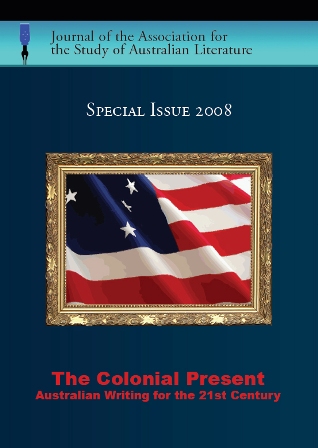"Dancing the Old Enlightenment": Gould's Book of Fish, the Historical Novel and the Postmodern Sublime
Keywords:
Richard Flanagan, historical novelAbstract
The strategy that I wish to explore in this analysis of Gould’s Book of Fish is the postmodern experimental narrativisation of the colonial past applied to a political critique of the national present. More specifically, through interpreting the novel through Lyotard’s discussion of the postmodern sublime and a theory of bodily experience, it is possible to argue that Flanagan employs a postmodern aesthetic as a type of immanent critique in which the postmodern dialectic can be read as an extension of Enlightenment thinking. In the novel the past is shifting and, at least in a positivistic sense, ultimately irretrievable. This signals the notion of history as the postmodern sublime – a space of irretrievable loss and unfulfilled desire at the edges of the margins of history. While history and the colonial past shift and change in the novel, the representations of bodily experience anchor Flanagan’s novel in the recognition that real lives, often individual and collective suffering, often motivate postmodern critiques.Downloads
Published
2008-05-02
Issue
Section
Articles
License
The copyright for articles in this journal is retained by the author(s), with first publication rights granted to the journal. By virtue of their appearance in this open access journal, articles are free to use with proper attribution in educational and other non-commercial sectors.Attribution-NonCommercial-ShareAlike 2.1 Australia
This work is licensed under the Creative Commons Attribution-NonCommercial-ShareAlike 2.1 Australia License. To view a copy of this license, visit http://creativecommons.org/licenses/by-nc-sa/2.1/au/ or send a letter to Creative Commons, 543 Howard Street, 5th Floor, San Francisco, California, 94105, USA.
How to Cite
"Dancing the Old Enlightenment": Gould’s Book of Fish, the Historical Novel and the Postmodern Sublime. (2008). Journal of the Association for the Study of Australian Literature, 114-129. https://openjournals.library.sydney.edu.au/JASAL/article/view/9632

